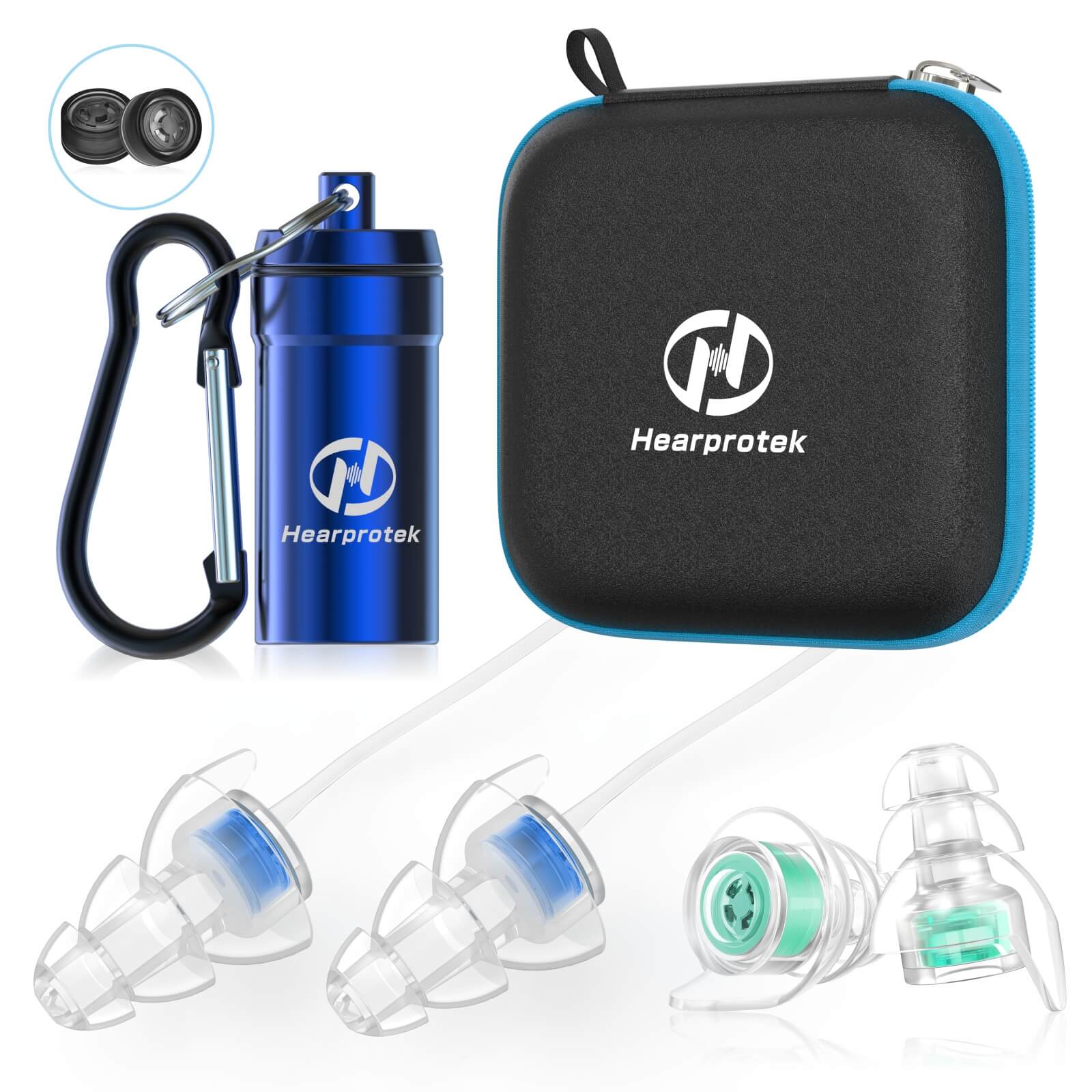Are Foam or Silicone Earplugs Better for Concerts? Pros and Cons Revealed
Cuerpo
When attending a concert, protecting your hearing should be a top priority. The loud music and screaming fans can expose your ears to potentially damaging levels of noise. That's why using earplugs is essential to prevent long-term hearing damage. But which type of earplugs is better for concerts: foam or silicone? In this article, we will explore the pros and cons of both options to help you make an informed decision.

The Pros and Cons of Foam Earplugs
Foam earplugs are a popular choice among concert-goers due to their affordability and effectiveness in reducing noise levels. These earplugs are made of a soft, compressible foam material that expands to fit the shape of your ear canal when inserted. This snug fit helps block out loud sounds, allowing you to enjoy the music without risking your hearing.
One of the advantages of foam earplugs is their high noise reduction rating (NRR). NRR is a measure of how much noise the earplugs can block out. Foam earplugs typically have a higher NRR compared to silicone earplugs, making them more effective in attenuating loud concert sounds.
However, foam earplugs also have some drawbacks. They can be uncomfortable to wear for long periods, especially if you have sensitive ears. The foam material can cause irritation or pressure buildup, leading to discomfort. Additionally, foam earplugs are disposable and need to be replaced regularly, which can be inconvenient and costly in the long run.
The Pros and Cons of Silicone Earplugs
Silicone earplugs offer a different set of advantages and disadvantages compared to foam earplugs. These earplugs are made of a soft, flexible silicone material that molds to the shape of your ear canal. They are reusable and can be easily cleaned, making them a more cost-effective option in the long term.
One of the benefits of silicone earplugs is their comfort. The soft silicone material provides a gentle and comfortable fit, making them suitable for extended use during concerts. They are also hypoallergenic, which is ideal for individuals with sensitive skin or allergies.
However, silicone earplugs may not provide as high of an NRR as foam earplugs. This means they may not block out as much noise, which could be a concern if you are attending a particularly loud concert. Additionally, silicone earplugs can be more expensive upfront compared to foam earplugs.
Choosing the Right Earplugs for You
Ultimately, the choice between foam and silicone earplugs depends on your personal preferences and needs. If you prioritize maximum noise reduction and don't mind the occasional discomfort, foam earplugs may be the better option for you. On the other hand, if comfort and reusability are important to you, silicone earplugs may be the way to go.
It's worth noting that there are other types of earplugs available, such as custom-molded earplugs or musician earplugs, which are specifically designed for concert use. These options offer a more tailored fit and attenuate sound while preserving sound quality. If you attend concerts frequently or are a musician, investing in these specialized earplugs may be worth considering.
Remember, regardless of the type of earplugs you choose, it's crucial to use them correctly. Make sure to insert them properly into your ears, following the manufacturer's instructions. Improper use can reduce their effectiveness in protecting your hearing.
For more information on hearing protection and the pros and cons of different earplug options, you can visit the following credible sources:










Comentarios